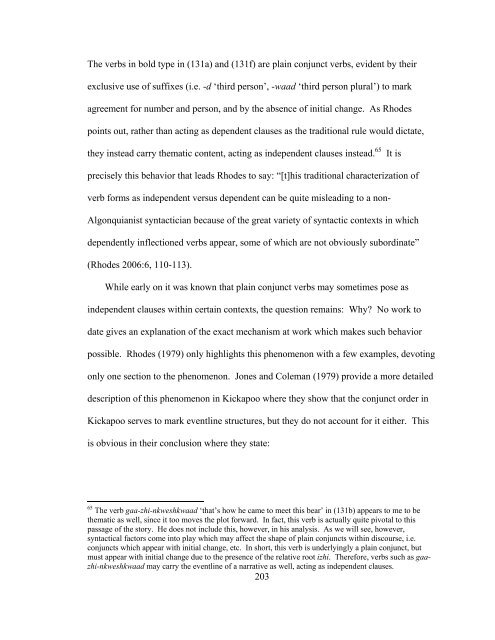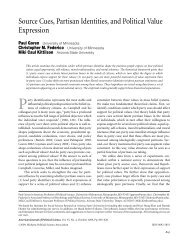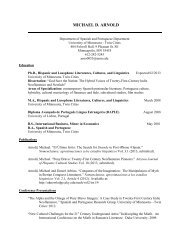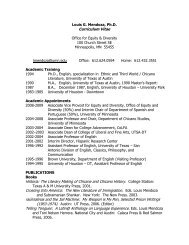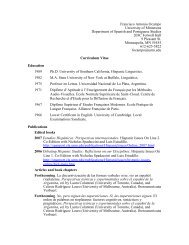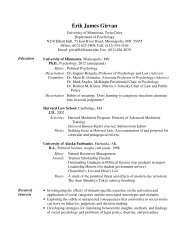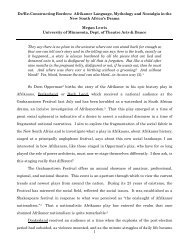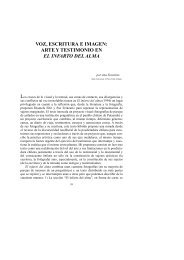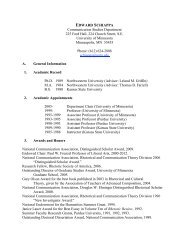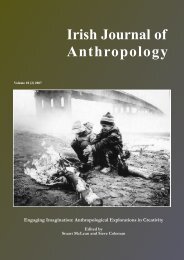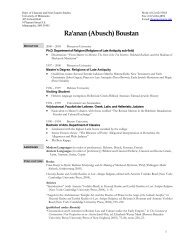A DISSERTATION SUBMITTED TO THE FACULTY OF THE ...
A DISSERTATION SUBMITTED TO THE FACULTY OF THE ...
A DISSERTATION SUBMITTED TO THE FACULTY OF THE ...
Create successful ePaper yourself
Turn your PDF publications into a flip-book with our unique Google optimized e-Paper software.
The verbs in bold type in (131a) and (131f) are plain conjunct verbs, evident by their<br />
exclusive use of suffixes (i.e. -d ‘third person’, -waad ‘third person plural’) to mark<br />
agreement for number and person, and by the absence of initial change. As Rhodes<br />
points out, rather than acting as dependent clauses as the traditional rule would dictate,<br />
they instead carry thematic content, acting as independent clauses instead. 65 It is<br />
precisely this behavior that leads Rhodes to say: “[t]his traditional characterization of<br />
verb forms as independent versus dependent can be quite misleading to a non-<br />
Algonquianist syntactician because of the great variety of syntactic contexts in which<br />
dependently inflectioned verbs appear, some of which are not obviously subordinate”<br />
(Rhodes 2006:6, 110-113).<br />
While early on it was known that plain conjunct verbs may sometimes pose as<br />
independent clauses within certain contexts, the question remains: Why? No work to<br />
date gives an explanation of the exact mechanism at work which makes such behavior<br />
possible. Rhodes (1979) only highlights this phenomenon with a few examples, devoting<br />
only one section to the phenomenon. Jones and Coleman (1979) provide a more detailed<br />
description of this phenomenon in Kickapoo where they show that the conjunct order in<br />
Kickapoo serves to mark eventline structures, but they do not account for it either. This<br />
is obvious in their conclusion where they state:<br />
65<br />
The verb gaa-zhi-nkweshkwaad ‘that’s how he came to meet this bear’ in (131b) appears to me to be<br />
thematic as well, since it too moves the plot forward. In fact, this verb is actually quite pivotal to this<br />
passage of the story. He does not include this, however, in his analysis. As we will see, however,<br />
syntactical factors come into play which may affect the shape of plain conjuncts within discourse, i.e.<br />
conjuncts which appear with initial change, etc. In short, this verb is underlyingly a plain conjunct, but<br />
must appear with initial change due to the presence of the relative root izhi. Therefore, verbs such as gaazhi-nkweshkwaad<br />
may carry the eventline of a narrative as well, acting as independent clauses.<br />
203


